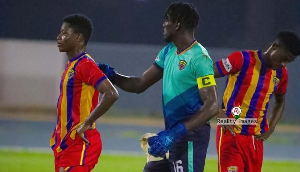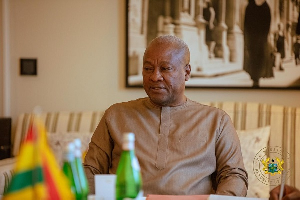Sixty-six military officers, constituting the Emergency Medical Technicians (EMTs), passed out on Thursday, after receiving a one-year intensive training in emergency medical procedures, from the National Ambulance Service (NAS).
The training, in line with international standards, took the trainees through courses such as, Basic Principles of Resuscitation, Automated External Defibrillation, Control of Hemorrhage, Treatment of Shock, Bandaging of Wounds, Administration of Oxygen, among others.
The graduating military EMTs would be posted to health facilities within the Ghana Armed Forces (GAF), while some would also be deployed to military operations nationally, especially during emergencies and medical covers, and to peace-keeping operations.
Addressing the graduands, Commodore Kofi Faidoo, Director-General for Training at the Military Academy, noted that the training was to enable GAF take care of casualties and other forms of ailments which came with its operation locally and internationally.
He said over the years, a gap in expertise of pre-hospital management of casualties which had resulted in loss of lives and maiming of people due to inappropriate management, had been of major concern to the GAF.
Commodore Faidoo, who was also the Reviewing Officer for the parade mounted by the graduands, said the 37 Military Hospital had been designated as the National Disaster and Emergency Facility, hence the need for it to fill in the gaps with well-trained personnel, equipped with the requisite skills in medical emergencies.
Professor Ahmed Zakaria, Chief Executive Officer, NAS, said the EMTs would be responsible for the provision of first aid and frontline trauma care on battlefield, provide continuous medical care in the absence of a readily available physician, including care for disease and battle injuries.
“They would be normally co-located with the combat troops they serve in order to easily move with the troops and monitor ongoing health issues”, he said.
He said the EMTs has a crucial role to play, including the provision of initial wound treatment, keeping a patient stable during transport and sometimes working alongside physician in Army Hospitals.
“Their main goal is simply to keep patients alive and in the best possible shape until they can get to a hospital”, he said.
He said the EMTs after their training were poised to assist doctors deliver enhanced emergency care services at military health facilities.
Lance Corporal Emmanuel Ekpeh-Addrey was adjudged the Overall Best Student, while Sergeant David Akea-Daboo emerged as the Best Student in Practicals, with Able Seaman 1 (AB1) Mary Kutsikor becoming the Overall Best Female Student.
Health News of Saturday, 11 October 2014
Source: GNA

















